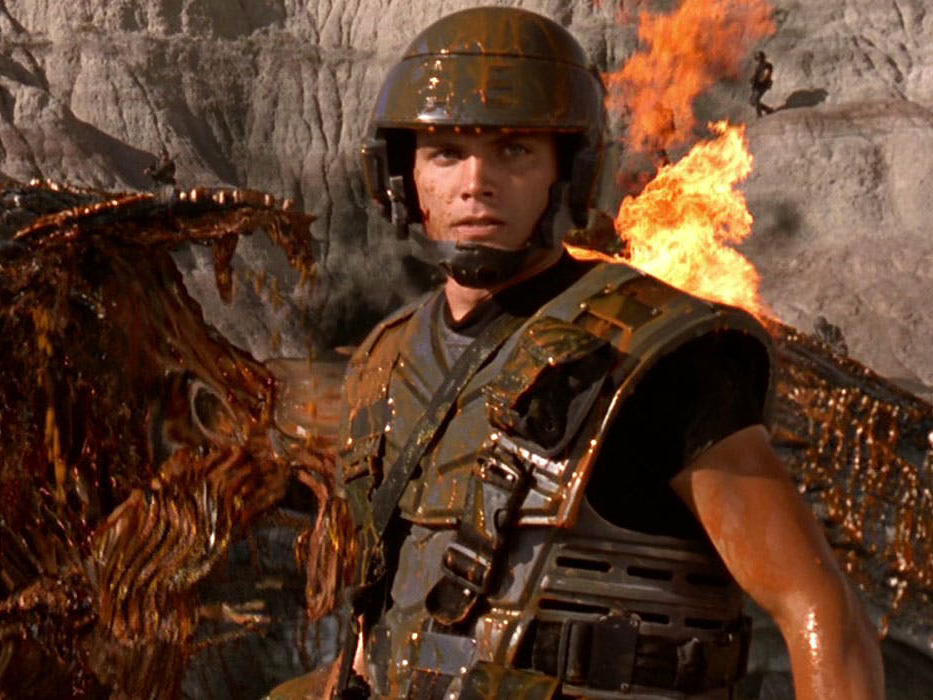Week 21/2023
This week’s selection features a series of fantastical creations.
On Monday, Art Cinema OFFoff leads the way with a program of films by Pierre Clémenti. OFFoff invited Clémenti’s son Balthazarto present the new 4K restorations of À l'ombre de la canaille bleue (1986) and Soleil (1988), his father’s last two films. Clémenti’s hallucinatory sci-fi-noir À l'ombre de la canaille was his sole narrative feature, and it may also be his masterwork. Shot on 16mm, Clémenti’s dystopian vision of Paris is called Nécrocity, a hedonistic netherworld where state police (with the chief played by Clémenti himself) chase gangsters through hazy, heroin-fuelled nightlife.
Introducing our second film, Paul Verhoeven’s classic Starship Troopers (1997), requires a small jump to a different kind of dystopia altogether:. Although not well-received upon release, the film’s blend of genres and American TV soap-like tropes gained special acclaim in the post-9/11 era. As Verhoeven himself said, “In some ways, it's a pleasure that it all became true, but on the other hand, there's not much pleasure that it came true.”
Our last film, Malá morská víla [The Little Mermaid] (1976) by Czech filmmaker Karel Kachyna, is an adaptation of Hans Christian Andersen’s classic fairy tale. Unlike Disney’s recent reboot, this adaptation is most faithful to the grim morality of the original story. Known for its beautiful costume design and optical ingenuity to achieve an underwater effect, the film stands out for its musical score composed by Zdeněk Liška, who also composed music for Spalovac mrtvol [The Cremator] (Juraj Herz, 1969) and Ovoce stromu rajských jíme [Fruit of Paradise] (Vera Chytilová, 1970). Fittingly, the score was release on the Finders Keepers label.


